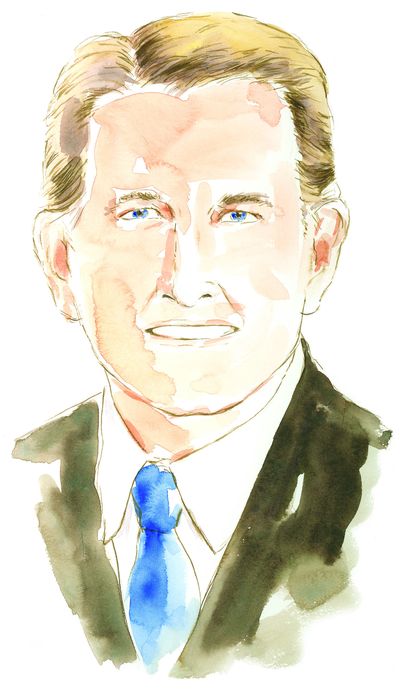Elections, redistricting likely to play big role in Idaho

BOISE – As Idaho lawmakers head into an election-year session, they’re facing big decisions.
Lawmakers and Gov. Butch Otter budgeted so conservatively last year that they’re now sitting on a $130 million surplus, even as health care services for the poor have been slashed, universities, schools and state agencies have seen their funding drop sharply and state employees have gone without raises.
But the decisions this year will be made in a highly political atmosphere. Every seat in the Legislature is up for election, redistricting has left many lawmakers’ districts in flux, and the state’s first closed Republican primary looms in May, raising the prospect that a lightly attended vote by core partisans could decide the future of Idaho’s GOP-dominated government.
“I’ve heard it characterized as people are going to crawl over the top of one another trying to get farther to the right,” said Sen. John Goedde, R-Coeur d’Alene. “I hope that’s not the case. I hope reasonable heads can deliberate as we have in the past.”
Said House Speaker Lawerence Denney, R-Midvale: “There are politics played in every session.”
But here are some signs that politics could play an outsized role this year:
• Otter, a Republican, is pushing hard for establishment of a state-run health insurance exchange, as required by the federal health care reform law; the state has $20.3 million in federal grant funds to start it up. Backed by the state’s business community, Otter says if the state doesn’t act, it could lose hundreds of millions in Medicaid funds and be forced to submit to a federally run exchange with no state input.
Conservatives in the governor’s own party, including Rep. Vito Barbieri, R-Dalton Gardens, are mobilizing against the move, saying if Idaho takes the money it’s giving in to “Obamacare.”
“This health care mandate is not good for the nation. It’s socialism. … A socialist America is a broken America,” Barbieri said.
• Candidates already are announcing runs against sitting lawmakers. The official candidate filing period for the May primary election starts Feb. 27, just as lawmakers will be wrestling with the issues at the heart of their session – and feeling pulled to score political points on the re-election front back home.
• Redistricting could force some incumbents into face-offs against others, if the current lines are upheld in court. They include Denney, whose district would include five current House incumbents. In North Idaho, Sen. Joyce Broadsword, R-Sagle, decided not to seek a fifth term rather than take on ally Sen. Shawn Keough, R-Sandpoint. Reps. Dick Harwood, R-St. Maries, Shirley Ringo, D-Moscow, and Tom Trail, R-Moscow, all landed in the new District 5, where there are just two seats.
• Thousands of voters around the state signed petitions to qualify a referendum on the “Students Come First” school reform plan for the November ballot. The plan calls for shifting funds from salaries to technology and a new focus on online learning. The referendum, which Otter has vowed to campaign against, would rescind the whole plan.
• Proposals are floating already to cut individual and corporate income taxes, or possibly to phase in cuts over a number of years. Otter has tried to dampen the call by endorsing a small trim in individual income tax rates to bring them equal with corporate rates. Others are questioning tax cuts in the face of Idaho’s recent sharp budget cutbacks. House Minority Leader John Rusche, D-Lewiston, warned that tax cuts aren’t an automatic job-creator, saying, “We have to look at the long-term consequences.”
• Anti-smoking advocates will propose a raise in Idaho’s cigarette tax, now one of the lowest in the nation, to help cover smoking-related health care costs and to discourage youth smoking by raising the price. Last year, GOP lawmakers refused to allow a hearing on such a measure. Denney says he’ll only consider it if tobacco sales on the Internet and on tribal reservations also are addressed.
One issue on which legislative leaders from both parties say they’ll try to put politics aside this year: ethics.
Both Democratic and Republican leaders say they want Idaho to enact new, stronger ethics laws, possibly including a new independent ethics commission – something 41 states have but Idaho lacks.